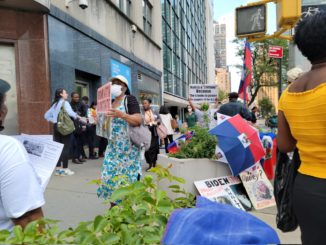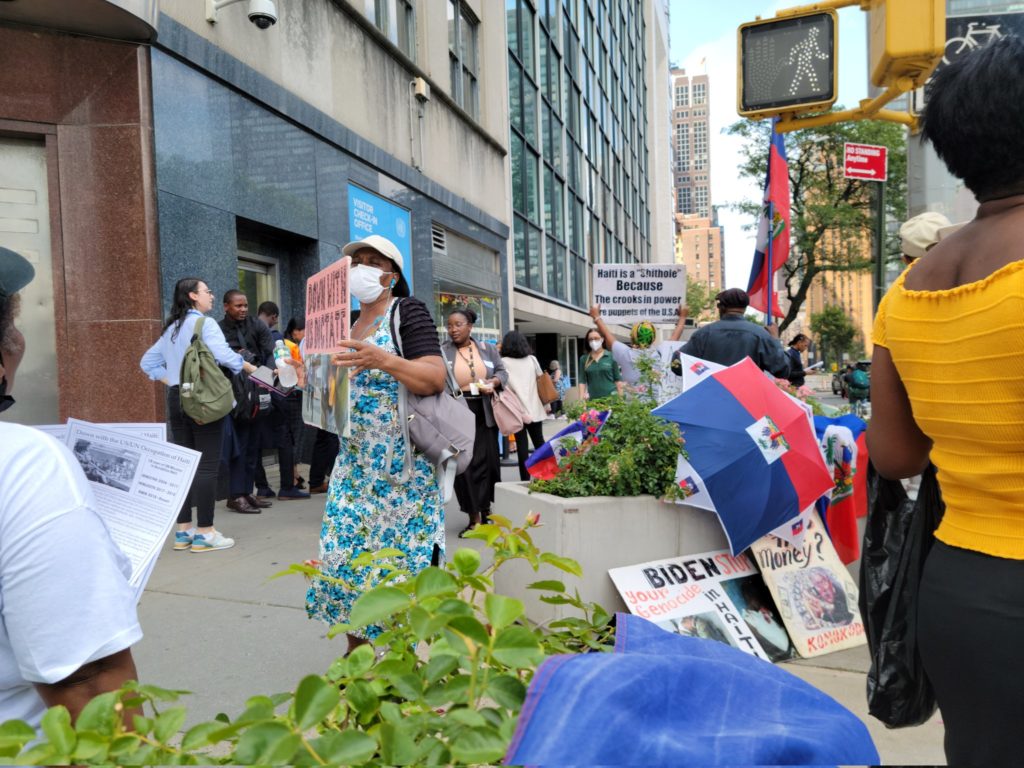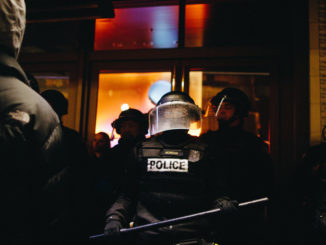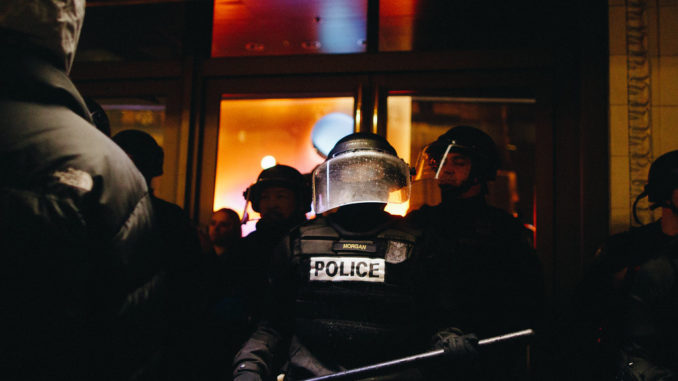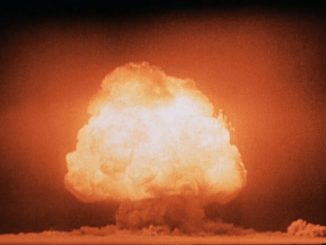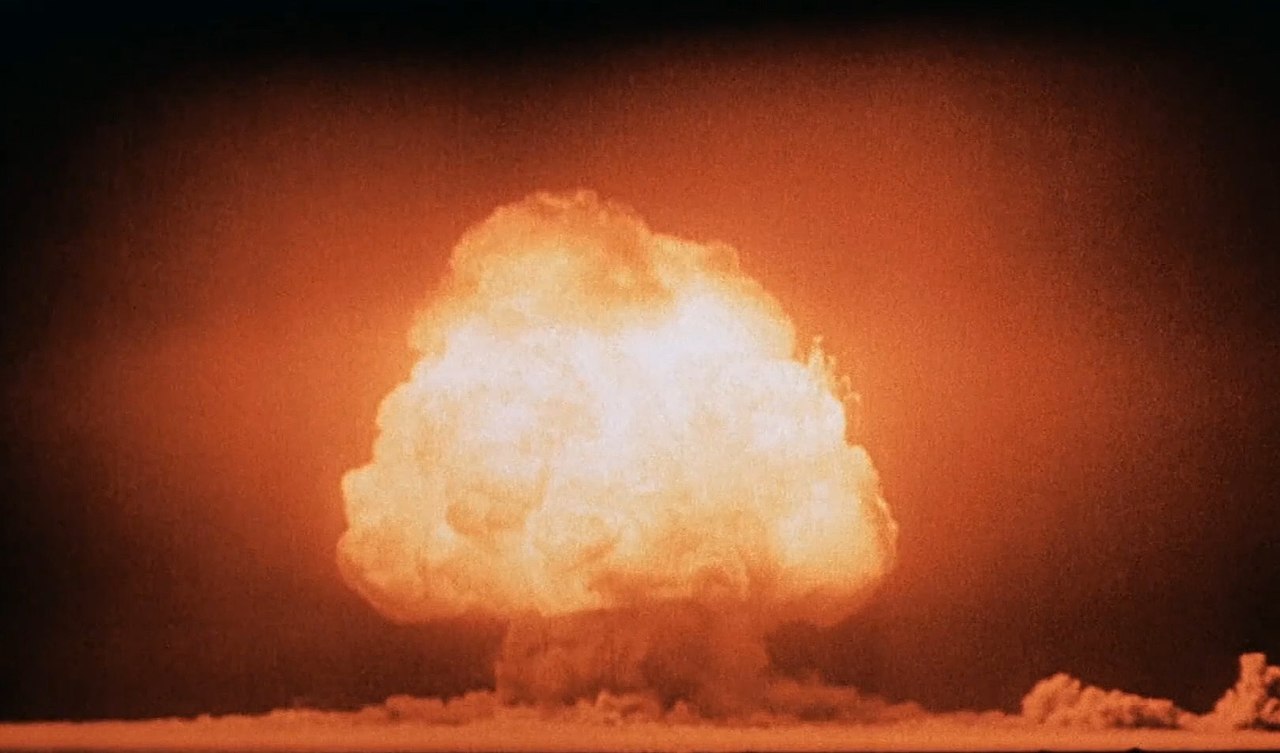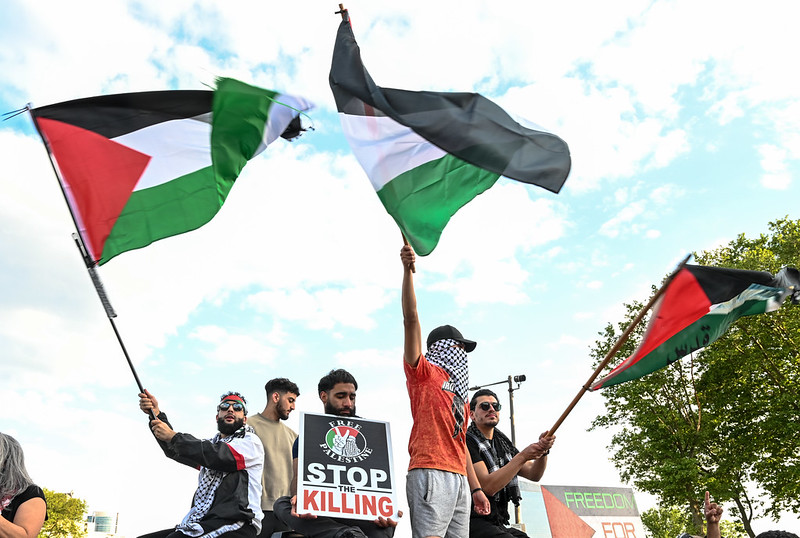
Editor’s Note: The following is the writer’s opinion.
Israeli Ambassador to the United Nations Gilad Erdan is leading his country’s anti-Palestinian propaganda, this time engaging in pre-emptive hasbara in anticipation of a Palestinian response to the ongoing evictions in the East Jerusalem neighborhood of Sheikh Jarrah.
“Would you consider it a terror attack if a rock like this was thrown at your car while driving with your children?” Erdan asked the United Nations Security Council members, while holding the rock in his hands. “Would you, at the very least, condemn these brutal terror attacks carried out against Israeli civilians by Palestinians?”
This Israeli logic is quite typical, where oppressed Palestinians are depicted to be the aggressor, and oppressive Israel – a racist apartheid state by any standard – presents itself as a victim merely engaging in defending its own citizens.
But Erdan’s selective logic is, this time around, compelled by something else. His UN charade is merely aimed at creating a distraction from the ongoing horrific events transpiring in Sheikh Jarrah and throughout occupied East Jerusalem. On Wednesday, January 19, the Palestinain Salhiya family’s home was demolished by Israel, rendering 15 people, mostly children, homeless.
A few days earlier, a heart-wrenching event took place on top of that very site, when members of the Salhiya family threatened to set themselves ablaze as they agonized over the imminent loss of their family home.
“We have nothing left for us in Jerusalem. This is ethnic cleansing. Today me, tomorrow my neighbors. We’d rather die on our land with dignity than surrender to them,” Mahmoud Salhiya, the owner of the house said, before he was dissuaded by neighbors not to set himself on fire.
These tragic events are being watched closely, first by Palestinians and also by people around the world. If the momentum of Israeli destruction continues, chances are we could witness another popular uprising. Erdan’s spectacle at the UN is a desperate act of propaganda to sway members of the international community from criticizing Israel.
But Israel is failing at making a case for itself, similar to its failure to defend its horrific violence against Palestinians throughout occupied Palestine in May 2021. Even Israel’s traditional allies are speaking out against the latest round of ethnic cleansing in Sheikh Jarrah.
The US envoy to the United Nations expressed ‘concern’ over the forced expulsion in the Palestinian neighborhood. “To make progress, both Israel and the Palestinian Authority must refrain from unilateral steps that exacerbate tensions and undercut efforts to advance a negotiated two-state solution,” Linda Thomas-Greenfield said, using the usually guarded language. However, Thomas-Greenfield went on to warn against the “annexations of territory, settlement activity, demolitions and evictions – like what we saw in Sheikh Jarrah.”
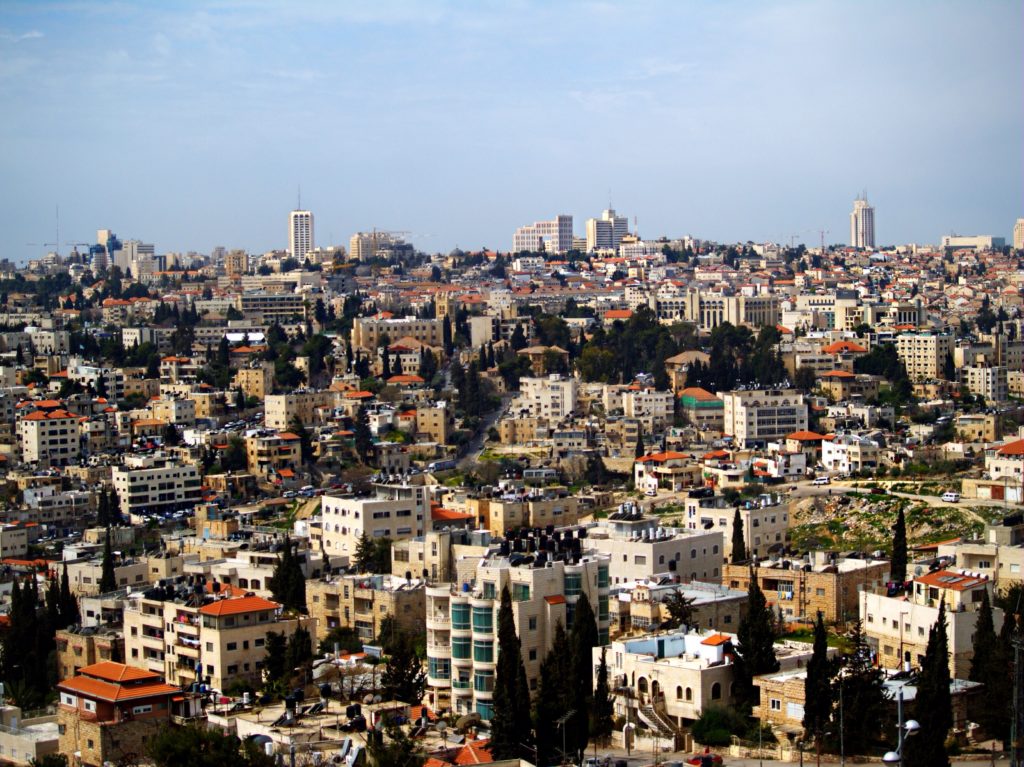
Also on January 19, US lawmaker, Rep. Mark Pocan strongly criticized the Israeli decision to forcefully evict the Salhiya family in Sheikh Jarrah.
“Last night, in the cover of darkness & freezing cold, the homes of the Salhiyeh family in Sheikh Jarrah, Jerusalem, were destroyed by Israeli forces leaving 15 people homeless. This is unacceptable and must end,” Pocan tweeted, adding the popular hashtag #Savesheikhjarrah.
For his part, the UN Middle East special envoy, Tor Wennsland, strongly condemned the expulsion of the Palestinian family by Israeli occupation authorities.
“I call on Israeli authorities to end the displacement and eviction of Palestinians, in line with its obligations under international law, and to approve additional plans that would enable Palestinian communities to build legally and address their development needs,” the UN website reported Wennesland as saying.
Back to Erdan’s display, where he showcased Palestinian ‘terrorism’ by presenting the supposedly damning evidence of a rock.
It must be said that criticizing or defending Palestinian resistance, however symbolic, allows Israel to engage in a misleading and frivolous conversation that creates a moral equivalence between the occupier and the occupied, the colonialist and the colonized.
Whether Palestinians use a stone, a gun or a clenched fist to resist and defend themselves, their resistance is morally and legally justifiable. Israel, on the other hand, like all other military occupiers and colonialists, has neither a moral nor a legal argument to justify its oppression of Palestinians, the destruction of their homes – like that of the Salhiya family – and the killing of their children.
Judging by the growing solidarity with Palestinians everywhere, it is clear that Erdan’s pathetic display is just another exercise in political futility.
Nothing that Israel can say or do will alter the glaring reality, that a new generation of Palestinians is, once again, unifying the Palestinian discourse, namely around Palestinian resistance to the Israeli occupation. Whether Israeli oppression is happening in Sheikh Jarrah, in Gaza, or the Naqab desert, Palestinians now collectively respond as one unified political body. Thanks to the May 2021 rebellion, gone are the days in which Palestinians are expelled from their homes in the middle of the night as if a routine event, with no consequence.
Moreover, the political language that is being used to describe events in Palestine in the international arena is itself changing. Israel’s ‘right to defend itself’ is no longer the knee-jerk reaction that is often used to describe Israeli violence and Palestinian resistance.
And finally, it seems that Israel is no longer the party shaping events in Palestine and controlling the discourse around these events. Palestinians, and a growing international movement of supporters, are proactively shaping global perceptions of the realities on the ground. Neither Erdan nor his bosses in Tel Aviv can reverse this Palestinian-led momentum. His UN display merely reflects the degree of desperation and intellectual bankruptcy of Israel and its representatives.
Ramzy Baroud is a journalist and the Editor of The Palestine Chronicle. He is the author of six books. His forthcoming book, co-edited with Ilan Pappé, is “Our Vision for Liberation: Engaged Palestinian Leaders and Intellectuals Speak out.” Dr. Baroud is a Non-resident Senior Research Fellow at the Center for Islam and Global Affairs (CIGA). His website is ramzybaroud.net.

